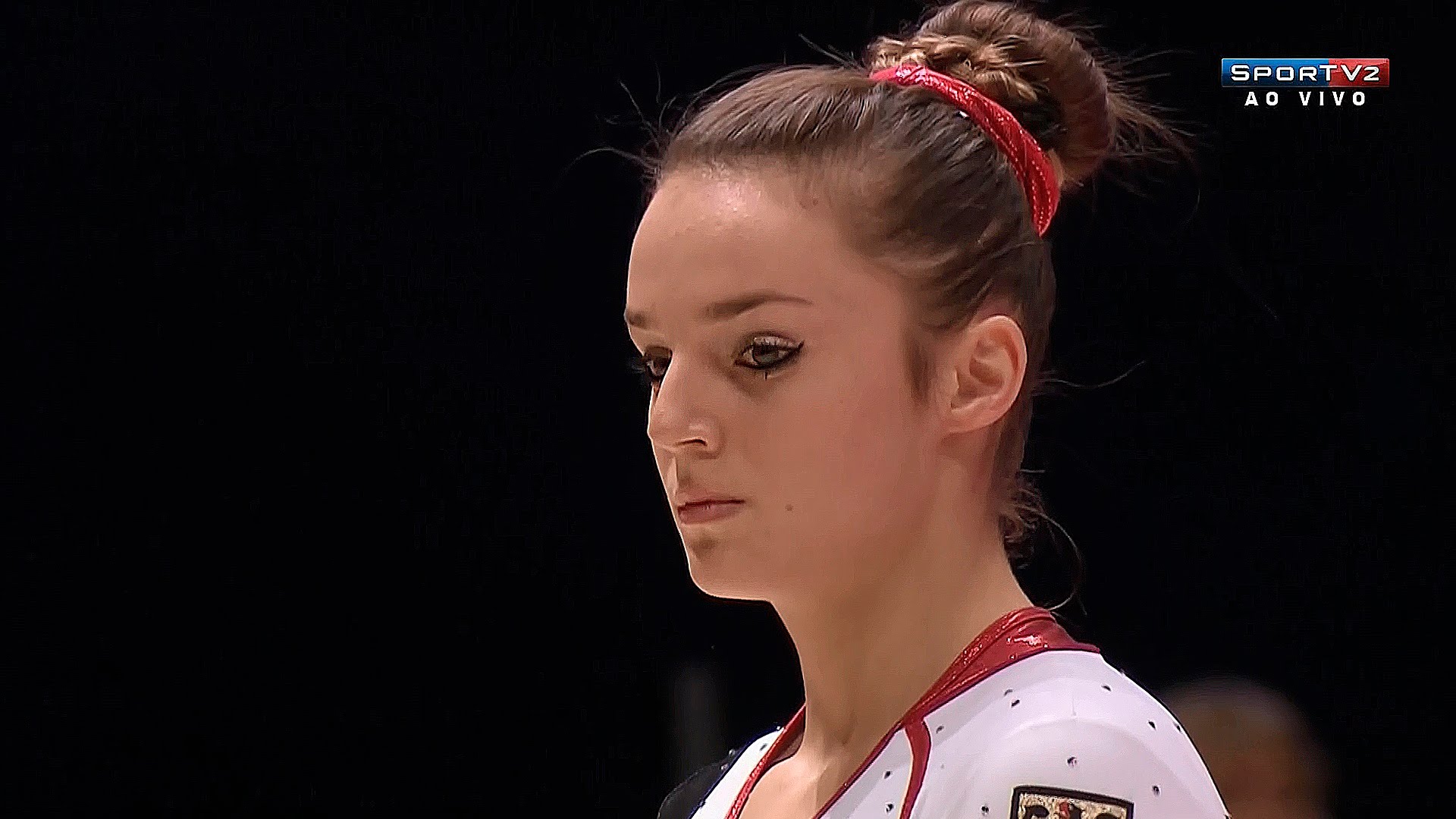Pauline Schaefer came to the European Championships as one of the favorites for a beam medal and finished second in the qualification. However, in the final, an unfortunate fall took her out of the running. She gave an interview to Der Tagesspiegel before the beam final and talked about coming back after injuries and her expectations for the competition and the season.
Translation from German by Emma Bateman
Q: You qualified to Sunday’s balance beam final with a strong routine. What are your expectations as you go into the competition?
A: Once you’ve reached the final, you’ve already put everything out there on the beam. But I don’t want to give it too much thought. My job is simple; to go out there and do the best I can. It’s very difficult when you’re a world champion – other people, as well as I myself, demand much more of me. But I always have to start from scratch. After all, is there any athlete that doesn’t have the goal of winning a medal when they make a major final?
Q: You’ve struggled a lot with injuries recently, preventing you from participating in the 2018 World Championships in Doha. How does it feel coming back to your first major competition?
A: I am so happy just to have qualified. I haven’t been able to train so well because of my
Q: When you were 13 you landed on the back of your head in a fall. In an interview with the DPA you said that as a result of this you have a fear of backwards elements. How do you manage to tune out this fear?
A: I just have to do it. There’s nothing else I can do.
Q: You have become well-known for the skill you invented- a side-
A: Yes,
Q: Some gymnasts have their issues with the balance beam. Describe your relationship to the apparatus.
A: So far we have gotten along pretty well. Before competing, of
Q: What will you do as preparation in the minutes leading up to the final?
A: You aren’t allowed a touch warm-up before competing in apparatus finals. I go out there and do some preparations on the side lines and then I’m up. I listen to some music on the bus journey. I don’t listen to anything specific, just whatever comes on- something motivating.
Q: You’re competing for a medal with gymnasts from all over Europe. What is your relationship like with your competitors?
A: I wouldn’t say we particularly have a relationship. We’re with each other in the gym, know each other from other competitions, and that’s about it.
Q: As a world champion, you are seen as a leader in this young German team. How do you handle this responsibility?
A: I don’t put myself under any pressure. The idea that I lead the team is just something you read in the newspaper. We don’t need a captain; the team works just fine. Sure, at 22, I am the oldest member of this team. But that doesn’t affect me.
Q: If you do manage to win a medal, will there be time to celebrate?
A: We’re traveling first thing Monday. There’s the banquet before that, where everybody gets together. We’ll have to see if anything happens after that
Q: What role
A: European Championships are an opportunity to gain experience. They don’t carry a huge significance. The upcoming Worlds in Stuttgart are more important – this is when we want to qualify for the Olympics.




I’m surprised her coaches let her do an interview before the final. From my understanding, most gymnasts are not allowed to do interviews right before the meet because it can sike them out.
Generally, at big competitions, gymnasts have an opportunity to talk to the media after every day of competition and sometimes there are additional interviews scheduled. When it says ‘before the final’, it doesn’t mean that she actually talked to the media an hour before the final. She was likely interviewed a day before or right after the qualification. The words ‘before the final’ just specify that she didn’t yet know how she would do in the final